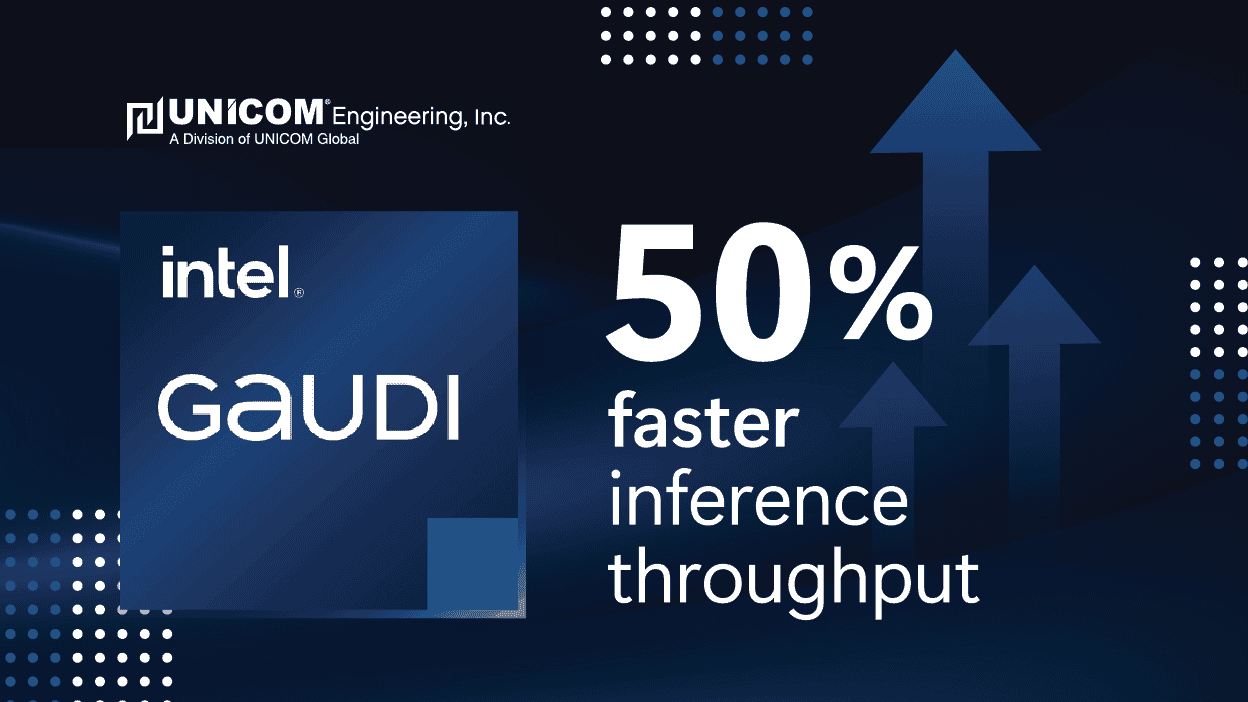Although interest in LLMs and other AI models continues to grow, organizations are still constrained by the architecture on which they operate. Intel Gaudi 3 accelerators represent a significant leap forward in performance and efficiency over prior generations and popular competitive architectures.
AI’s Architecture Challenges
According to a 2023 Foundry survey, only 34% of global IT decision-makers believed they had the right technology to succeed with AI. Respondents identified user experience (34%) and data integration (45%) as the most critical factors in their success. Meanwhile, 20% of those surveyed indicated they experimented with generative AI. This suggests that while there is interest in the technology, many current AI processing platforms have not yet been fully delivered.
Intel Gaudi 3 Advantages
With the introduction of its Intel Gaudi 3 AI accelerator, the company is bridging the gap between the hopes for AI and its real-life deployment and performance. With a relentless approach to improvement, the company continues to produce technology that not only improves on itself but also advances the entire AI field. Case in point, with this latest generation, Intel’s premier not only outperformed prior generations but competitive offerings as well, with:
- 50% faster time-to-train
- 50% faster inference throughput
- 40% greater inference power-efficiency
- 30% faster inferencing
Key Gen Over Gen Improvements
To accomplish these feats, Intel’s engineering team focused on several key improvements for the Intel Gaudi 3 AI accelerator platform over the Intel Gaudi 2 generation, including:
1. Increased Compute Power - Intel Gaudi 3 processors are built on 5nm architecture, unlike the prior generation’s 7nm. The results of this improved design include several performance enhancements. For example, Gaudi 3 delivers up to a 4x increase in AI compute for BF16 operations, accelerating complex AI processing, reducing inferencing times, and increasing inference throughput. Within its dedicated AI compute engine, each Gaudi 3 features 64 AI-custom and programmable tensor core processors (TPCs) and eight matrix multiplication engines (MMEs). Within each MME, 64,000 operations can be performed in parallel, facilitating the complex matrix operations that drive deep learning algorithms.
2. Expanded Memory Capacity and Bandwidth for LLMs—Intel Gaudi 3 offers 1.33x larger 128 gigabytes (GB) of high-bandwidth memory (HBMe2) and a 1.5x increase in memory bandwidth to 3.7 terabytes (TB). As a result, more AI memory is available for processing at any given time. Performance is enhanced for LLMs and multimodal models, and data centers can process more in the same amount of rack space.
3. Advanced Network Capabilities for Efficient Scaling—Intel Gaudi 3 comes equipped with 24 x 200 GBPs RDMA NIC ports to help scale AI inference workloads across large deployments with multiple devices and accelerators. Therefore, Gaudi 3 systems can scale from a single node to thousands. In addition, by using industry-standard network architectures, organizations can avoid vendor lock-in associated with proprietary networking solutions.
The Peripheral Component Interconnect Express (PCIe) add-in card is also part of the Gaudi 3 product line. It offers 128 GB of memory and 3.7 TB per second, making it ideal for enhancing inference and retrieval-augmented generation (RAG) workloads.
4. Open Standards and Developer Support—Intel Gaudi 3 offers optimized Hugging Face community-based models and Pytorch integration to make software teams as productive as possible. As a result, developers can freely work at a high abstraction level without worrying about porting across types of hardware. Additionally, with the exclusive Intel Tiber Developer Cloud, users can access cloud-based instances of Gaudi hardware to test and deploy models without using on-site resources.
Intel Gaudi 3 Hardware Options
Intel Gaudi 3 AI accelerator mezzanine cards (HL-325L and HL-335) are designed for massive data center scale-out and are available in air—and liquid-cooled configurations. With 24x200 GbE RoCE v2 RDMA ports, users can enjoy all-to-all communication through direct routing or standard Ethernet switching.
Intel Gaudi 3 PCIe Card - (HL-338) - a full-height, dual-slot PCIe card, 10.5” long, with a TDP of up to 600 watts.
The Intel Gaudi 3 accelerator baseboard (HLB-325) supports 8 Intel Gaudi 3 AI accelerator OAM mezzanine cards. It offers 4.2 TB per second bi-directional bandwidth without requiring a separate switching IC. The baseboard derives most of its power from a 54V power supply and only requires a separate 12V for its standby mode.
UNICOM Engineering’s Commitment to Intel Platforms and More
Although choosing the right AI processing platform is essential, partnering with an expert AI systems integrator is key to a successful launch and roll-out. As an Intel Titanium Level OEM partner, UNICOM Engineering has deep expertise in bringing innovative HPC and AI solutions to market, equipped with the latest technology for breakthrough performance. Our experienced team is ready to assist with designing your solution and ensuring it is deployed on the optimal hardware to meet your needs. Visit our website to schedule a consultation and learn more about how we can help you bring your AI solution to market.
